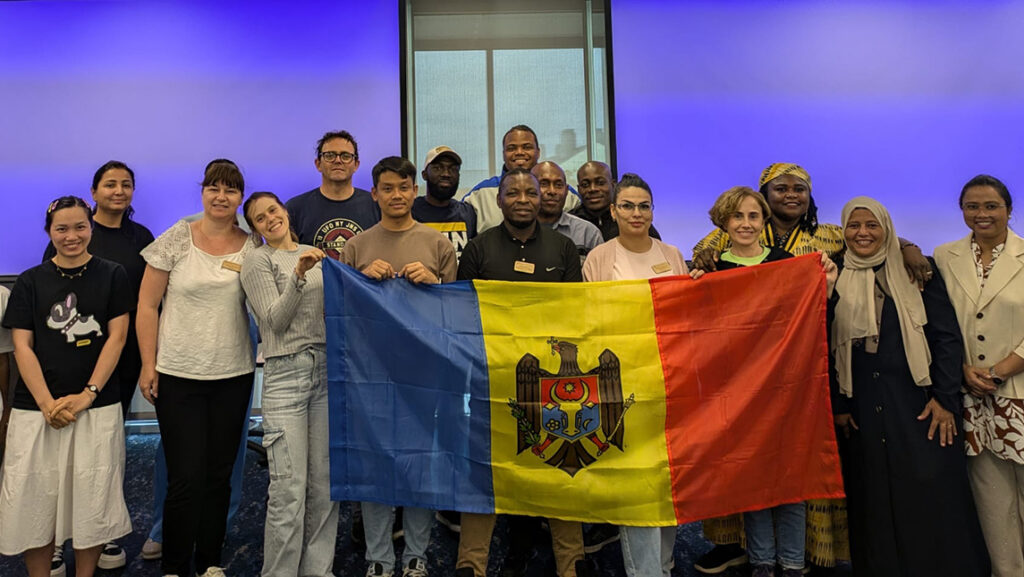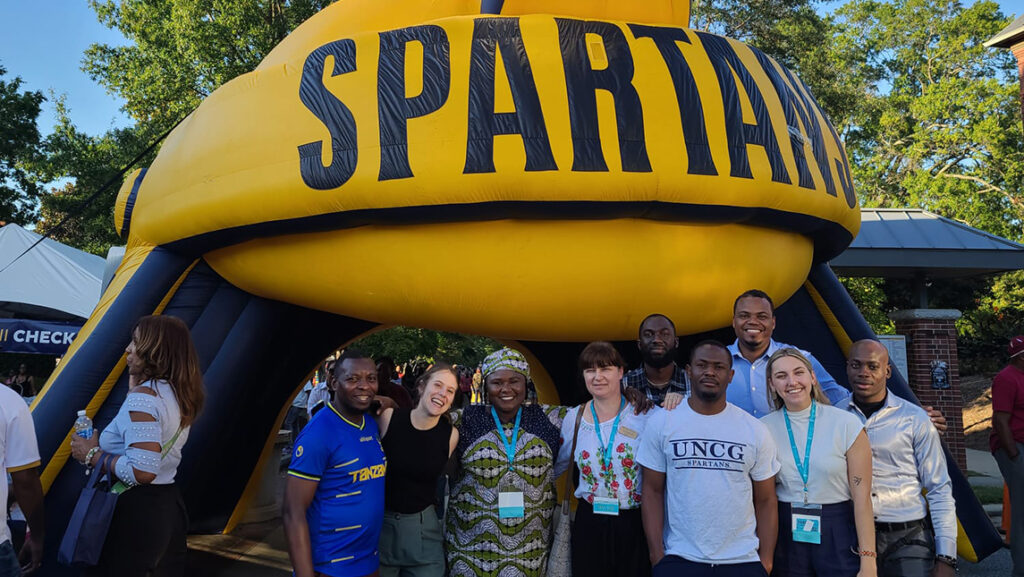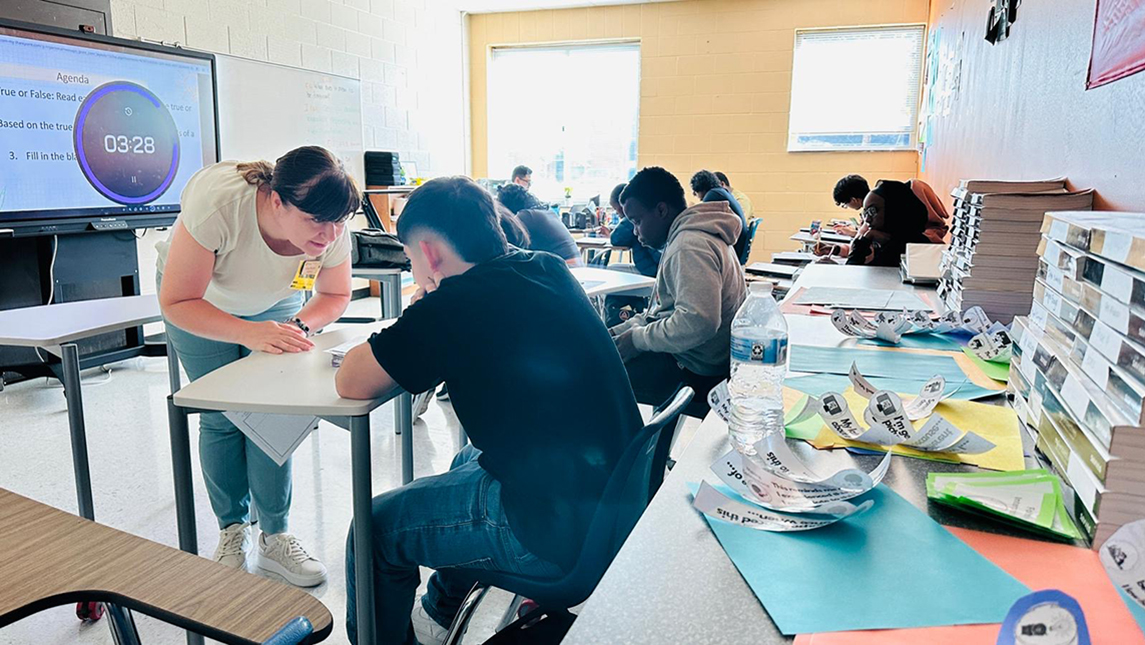Irina Mutruc, a 47-year-old Fulbright Teaching Excellence and Achievement (FTEA) fellow from Moldova, recently signed up for her first Instagram account. Her six-week experience at UNC Greensboro yielded too many experiences, too many connections, too many epiphanies, to keep it all to herself. “I have so many things to share!”
One of Mutruc’s first posts is a photo depicting a makeshift sculpture she constructed during an icebreaker with the other fellows. She placed colorful trinkets inside a jar and glued cotton balls to the outside. Pipe cleaners rise from the jar like flowers in a vase.
“We were asked to make something simple that shows our experience here,” she explains. “Everything inside the jar represents the knowledge I’m gaining from my time in Greensboro, and the small balls represent my students I’ll share that with when I get home. The pipe cleaners are the friends I’ve made on the program from all the different countries. They’re twisted together in places because we’ll all learning from each other before we go our separate ways.”

Unique professional development for global teachers
Mutruc is one of 20 FTEA teachers who hail from 18 countries and five continents. During their time at UNCG, they studied under instructors in the School of Education, compared best practices with other fellows, and spent time in Guilford County high schools.
The program offers high school teachers unique opportunities to enhance their teaching and leadership skills through first-hand experiences, networking, and cultural activities.
Even icebreaker activities like the sculpture Mutruc and her fellow participants made on their first day have a secondary impact on their students.
“As teachers, we were so engaged and involved, and we immediately imagined our kids doing the same thing,” she says. “It’s a way for them to think critically and express themselves. They are the future citizens of our country. The way they behave shapes our future, so we should try to make them aware of how important they are as people — as citizens who should be encouraged to participate and make decisions for their country.”

New perspectives lead to inclusive approaches in the classroom
Throughout the six-week period, UNCG professors shared their research and innovative teaching approaches. Mutruc points to inclusive education as an example.
“In my country, until about 10 years ago, students with disabilities were taught in separate schools,” she says. “Today, we have many challenges because the teachers are not prepared, and we must manage by ourselves. Here, we’ve been shown different approaches.”
A UNCG professor opened Mutruc’s eyes to the rewards of classrooms that include a spectrum of learning types. “It’s a win-win,” she now believes. “Students with physical disabilities learn from their peers who help prepare them for adult life. At the same time, their classmates learn to be tolerant and helpful adults who are responsive to other people’s needs. It’s amazing how children can do that even easier than adults can.”
As fellows shared challenges and triumphs from their home schools, they uncovered differences and commonalities. “It seems students everywhere are very similar,” she says.
While some challenges, like smartphone and social media addiction, are universal, others, like access to technology, vary from place to place. When Mutruc visited Greensboro’s Western Guilford High School, she was impressed to see classes with smartboards and students with their own school-supplied computers. “In Moldova, we still use blackboards and chalk. Teachers pay for internet connection out of their own pockets,” she says.
Still, Mutruc realizes things could be harder. “Even though we have poor internet connection, our school has electricity and running water. One of our fellow teachers from Haiti showed us his school, and nothing exists. Just some trees, and the students sit on the grass.”
Her takeaway: “As long as we are motivated and passionate, we can teach where we are. We can do big things with what we have.”
Fulbright TEA is funded by the U.S. government, supported by the Bureau of Educational and Cultural Affairs (ECA) of the U.S. Department of State, and administered by IREX. The Global Engagement Office and the School of Education are collaborating to implement the program at the UNCG campus.
Story by Robin Sutton Anders
Photography courtesy of Irina Mutruc



